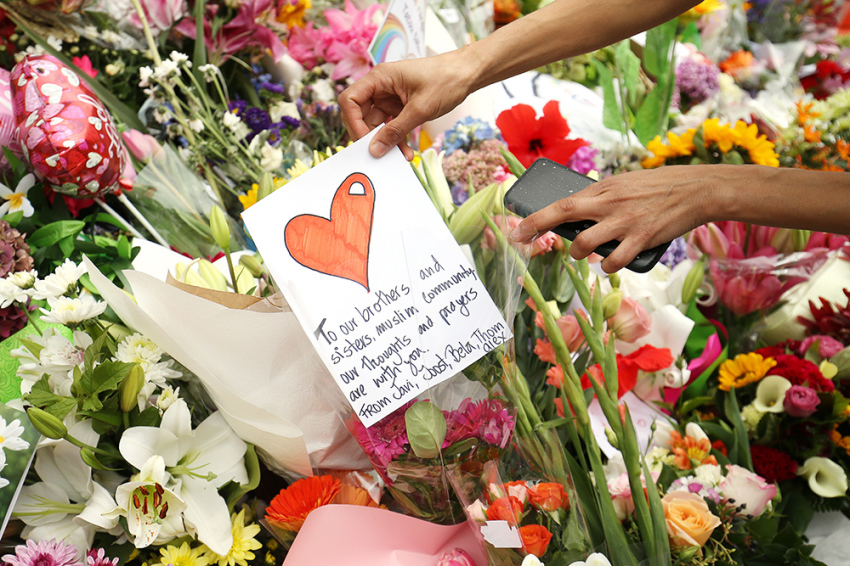Christchurch massacre: Can anything good come out of this attack?

As the horrific events in New Zealand stun the world, Christchurch suffers the wounds of a tragically growing list of cities. While so many predictably rush to politicize and blame, the frequency of these events might have created an additionally unhelpful effect.
Where most once put our hands over our mouth in horror, an increasing number merely pause to offer a brief tribute of sentiment as consolation.
“Our thoughts and prayers are with the victims and their families,” echoes often enough to warrant a predictive template on social media platforms to expedite the now traditional response. One can’t help but wonder the efficacy of the phrase to those forever burdened by such anguish.
“What thoughts?” “What prayers?” “To whom are you praying?” “What reply do you expect?” “How do grieving souls process others’ conversations with an all-powerful deity?”
The list of questions erupting from wounded souls must extend beyond the horizon.
In her core, America feels deeply and cherishes her citizens’ safety. Our society’s fracture, however, wrenches so many away from that core. As a result, we’re left disengaged — particularly if we disagree politically or religiously. How can we offer meaningful consolation to people on the other side of the world, if we can’t embrace our neighbors?
In Jesus’ parable of the Good Samaritan, the hero didn’t offer thoughts and prayers, but rather action and care. He first noticed and then approached the assaulted man. Only then could he bind the wounds and carry the injured man to safety. Once there, the parable’s hero then ensured sustainable care.
With social media and instant news, glibness and optics receive more shelf space than the heart. But care requires something of the caregiver. Instead of the now trite, “…Thoughts and Prayers,” let us indeed think and pray, but also speak and act with frankness and specificity. When words fail us, it is understandable to land on a phrase that feels safe and appropriate to say, but to be effective at ministering to the wounds, we must go deeper.
Our thoughts and prayers are between ourselves and God. Our words and actions speak to others.
May we address those forever altered in their pain with such directness as President George W. Bush stated through a megaphone on a pile of rubble so many years ago following an event that shocked the planet.
“I can hear you! I can hear you! The rest of the world hears you! And the people — and the people who knocked these buildings down will hear all of us soon!”
A president standing in carnage met the rawness of 9/11 with forthrightness and leadership.
Carnage in its all too many forms provides us with the opportunity to look at it for what it is — and speak hope and life to those around us. The only strengthening words are those communicating that the victim is seen, cared for specifically, and a plan is communicated to ensure sustainable care. Sentiment costs little and rarely comforts. Although costly, leadership always comforts.
The protection of citizens should remain paramount to any government. Part of that protection is equipping others to care for and protect themselves. Another part is seeing to those unable to do so. Let us offer more than thoughts and prayers. Let us offer leadership toward a safer, stronger, and more caring country seeking to assure one another that those who suffer will not do so in isolation. In doing so we also provide leadership to those watching us.
The most effective leaders are often those responding to that great need of assurance in the face of overwhelming loss. In those moments, our vocabulary changes from stock phrases to specificity.
Leadership in suffering can be as simple as saying, “I see you, and I see the magnitude of your pain and sorrow — and I will work to make sure you don’t endure this alone.” Those words emanate from the heart. Displaying outrage is a collective pastime. Displaying our hearts requires a greater courage.
From shootings to mental illness to immigration to race, may we be a nation that binds the wounds, regardless of our differences. May we be a people who notice suffering of those around us.
The question remains: Can anything good come out of the Christchurch massacre? If we use contemplation and prayer as a springboard to help care for and sustain one other, the answer is Yes. In doing so our united hands can then better extend to wounded lives around the world.



























